Camponotus laevigatus
299,90 zł – 399,90 zł
Camponotus laevigatus, also known as large gloss black ants from the USA, are monogynous with a single queen per colony. This product provides information on their size, development speed, nutrition, humidity, temperature, and recommended nests for breeding. Queen ants measure 14-17mm in length.
| Behavior | |
|---|---|
| Difficulty in breeding | |
| Origin | |
| The size of ants | |
| Wintering |
Camponotus laevigatus: Large Gloss Black Ants from the USA
Welcome to our product page for Camponotus laevigatus, also known as large gloss black ants from the USA. This species of ants is monogynous, meaning they have a single queen in each colony. If you are looking to start your own colony, read on to learn more about the size, development speed, nutrition, humidity, temperature, and recommended nests for breeding.
Colony Type: Monogyny
Colony Size: Up to 5000 workers
Development Speed: medium
Size and Color
- Queen: 4-17 mm
- Workers: 5-9 mm
- Majors: 8-16 mm
These ants have a glossy black color, adding to their aesthetic appeal.
Nutrition for Camponotus laevigatus
- Food insects (such as cockroaches and crickets) dead, or live if colony is big
- Syrup (a mixture of water and honey or sugar, with a ratio of 4/3 water:1)
- Fruits and vegetables
- Jelly
- Cooked chicken without salt, shrimps
- Honey
By incorporating these food sources into their diet, you can ensure that your Camponotus laevigatus ants receive the necessary nutrients for their growth and development.
Humidity and Temperature Guidelines
- Humidity: Arena: 40-60%, Nest: 50-60%
- Temperature: Arena: 22-28 °C, Nest: 22-26 °C
Developing Your Camponotus laevigatus Colony
When starting your own Camponotus laevigatus colony, it’s important to provide them with the right conditions to ensure successful reproduction and growth. Here are some tips:
- Choosing the Right Nest: Camponotus laevigatus ants prefer nests with multiple chambers and a combination of humidity and temperature control mechanisms. **Consider using a formicarium** made of acrylic or glass with easy access to food and water.
- Colony Setup: Introduce the queen to the nest and provide her with a small group of workers. Ensure they have sufficient food and water sources, and monitor the colony regularly for growth and expansion.
- Feeding: As mentioned earlier, provide a varied diet to your colony, consisting of insects, syrup, fruit, vegetables, jelly, and cooked chicken without salt. Observe their feeding patterns and adjust the quantity and frequency accordingly.
- Observation and Care: Regular observation of your colony will help you identify any issues or changes in behavior. **Perform maintenance tasks** such as cleaning the nest, monitoring the humidity and temperature, and managing food sources on a regular basis.
Conclusion
In summary, Camponotus laevigatus ants are fascinating creatures that can be kept and cared for in a captive environment. By providing them with the right diet, humidity, temperature, and nesting conditions, you can ensure the health and wellbeing of your colony. Whether you are a seasoned ant enthusiast or a beginner, starting a Camponotus laevigatus colony can be a rewarding experience. Make sure to follow the guidelines and enjoy observing these large gloss black ants from the USA thrive under your care.


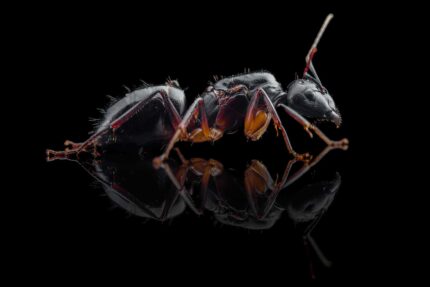
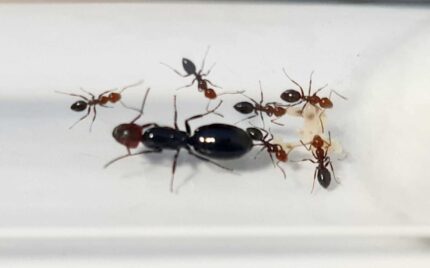
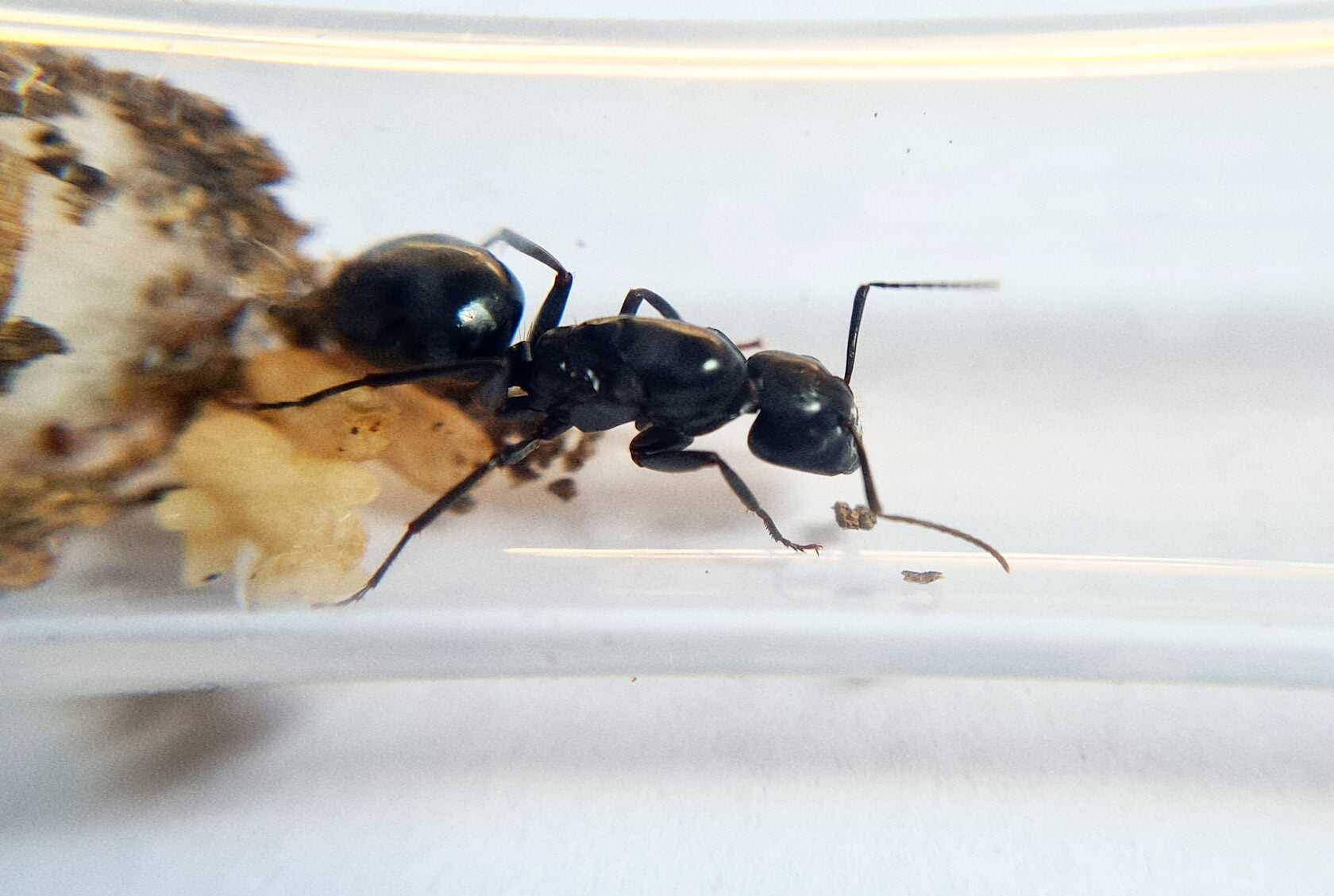
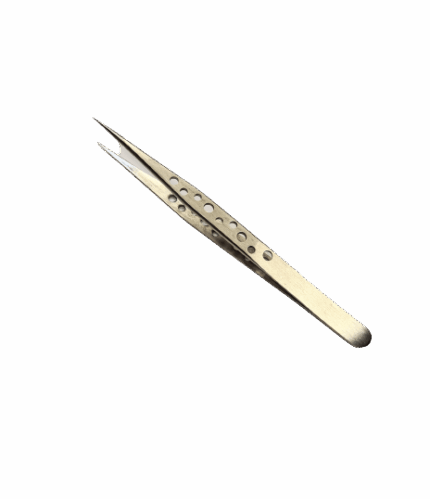
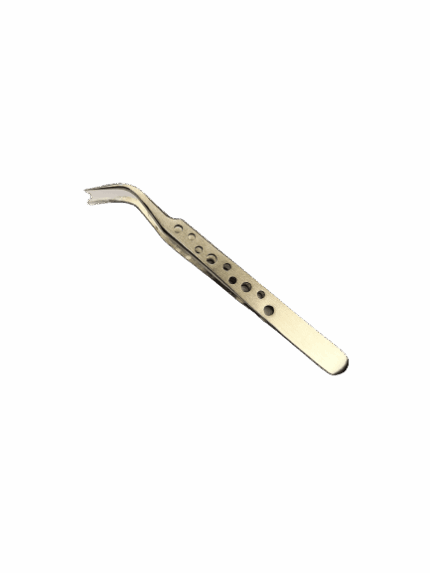
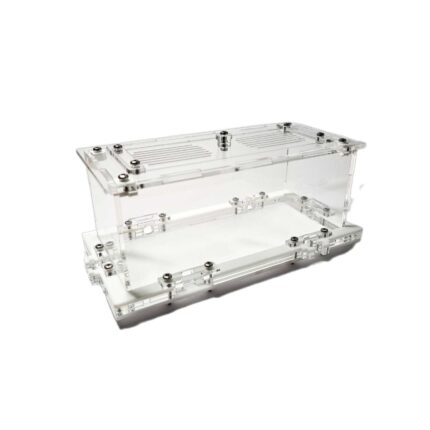
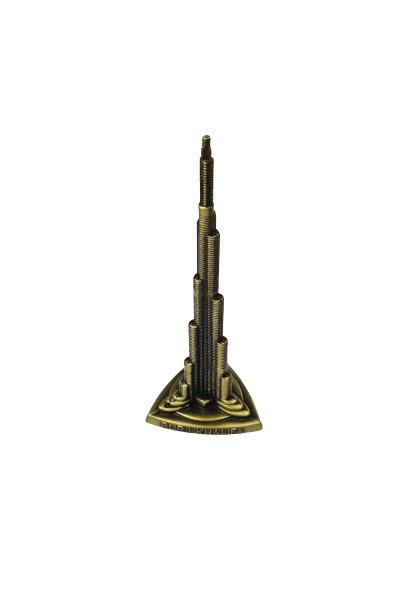
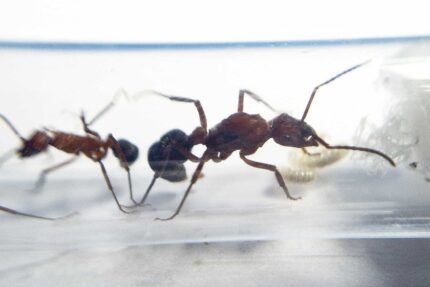
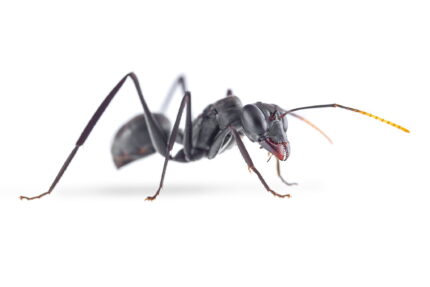
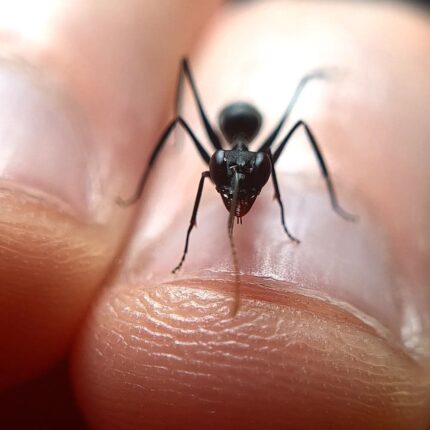
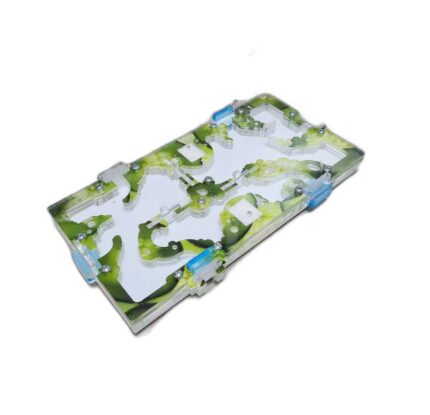
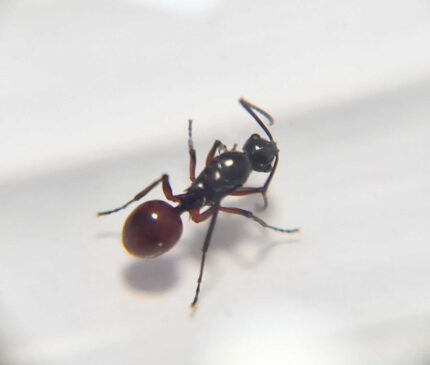
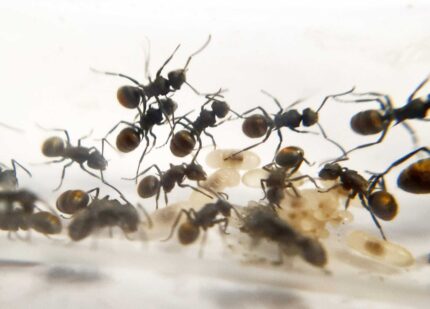
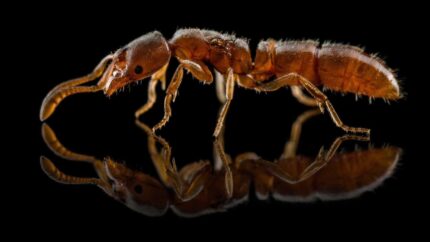
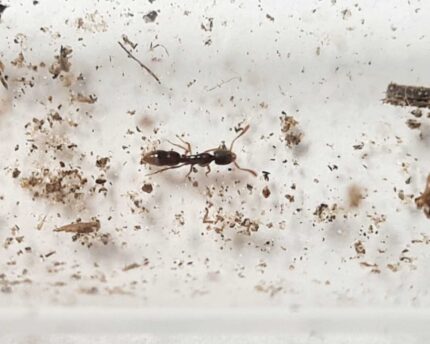
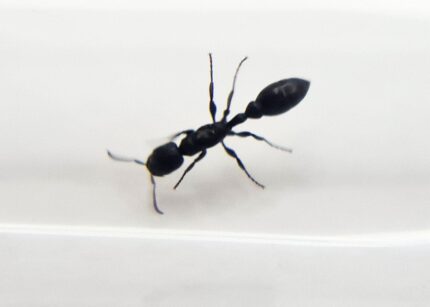
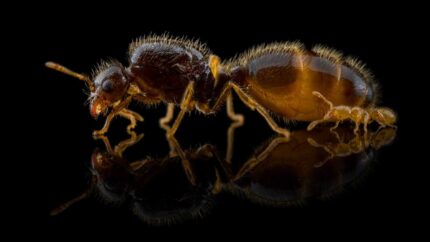
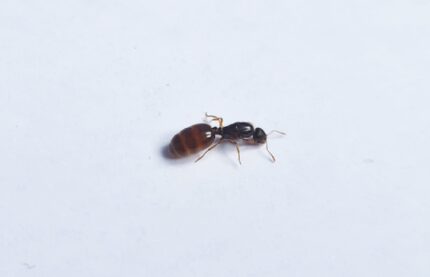
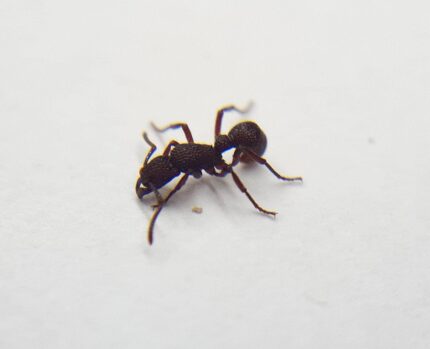
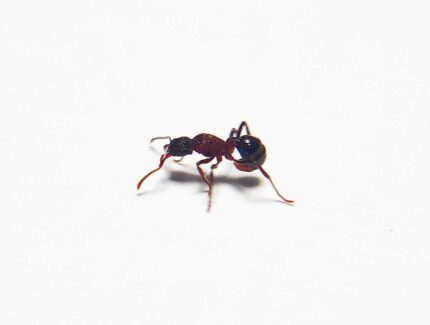
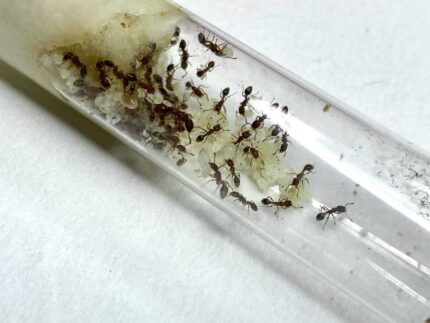
Valoraciones
Clear filtersNo hay valoraciones aún.